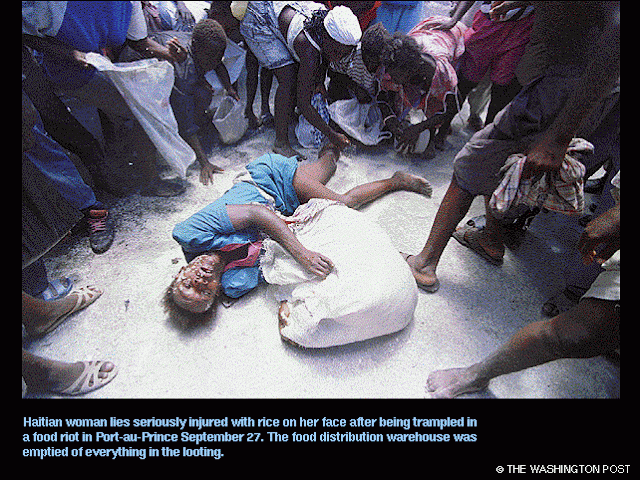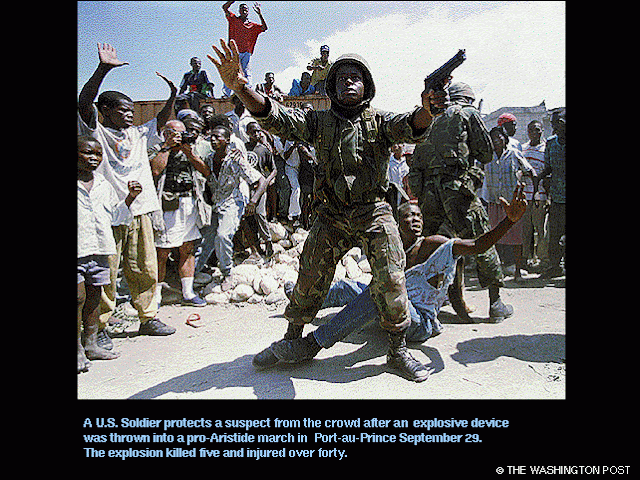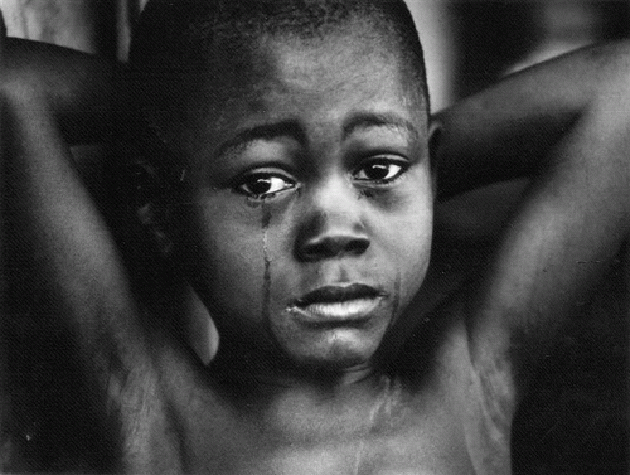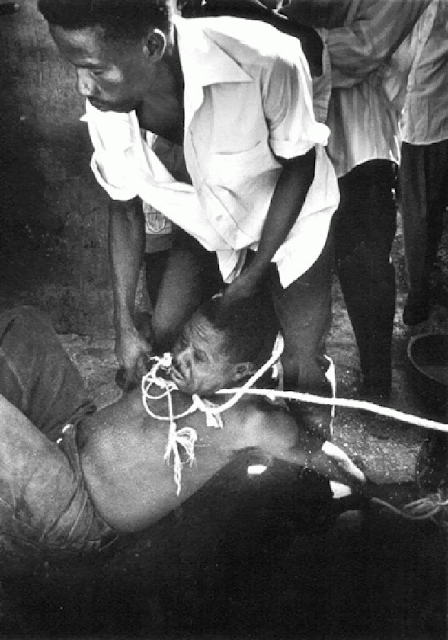---------oOo---------
Pulitzer Prizes for Photography:
Between 1942 and 1967 a Pulitzer Prize for Photography was awarded for photojournalism, that is, for photographs telling a news story. In 1968 that award was replaced by awards in two new categories:
- the Pulitzer Prize for Spot News Photography (photography in the nature of breaking news, as it has been called since 2000); and
- the Pulitzer Prize for Feature Photography (human interest and matters associated with new items).
World Press Photo of the Year:
From 1955 World Press Photo has awarded prizes for the best photographs in 10 categories, with an overall award for the image that "... is not only the photojournalistic encapsulation of the year, but represents an issue, situation or event of great journalistic importance, and does so in a way that demonstrates an outstanding level of visual perception and creativity".
---------oOo---------
The photographs are interesting not only in their own right but for being windows on history.
--------oOo--------
Award:
Pulitzer Prize for Spot News Photography (photography in the nature of breaking news)
Year:
1995
Photographer:
Carol Guzy of The Washington Post
Photograph(s):
For her series of photographs illustrating the crisis in Haiti and its aftermath.
---------oOo---------
Comments:
Quotes and commentaries below from:
Pulitzer Prize-winning photographer Carol Guzy (born 1956) is one of the most renowned American photojournalists of all time. Guzy gets results because she focuses on shooting feelings rather than pictures. Through her lens, she has delved into the darkest corners of human existence, hoping to bring understanding between people in all parts of the world. Over the years, she has brought viewers face to face with Kosovo refugees, famine in Ethiopia, civil unrest in Haiti, the fall of the Berlin Wall, and the tragedy of south Florida's Hurricane Andrew.
Carol Guzy has won the Pulitzer Prize four times, one of five people to do so and the first journalist with that achievement. Guzy was awarded a Pulitzer Prize in 1986, 1995, 2000 and 2011.
Pulitzer Awards
1986
Spot News Photography
The Armero tragedy following the eruption of Nevado del Ruiz in Colombia
In November of 1985 Colombia's Nevado del Ruiz volcano erupted, killing 23,000 people. The Miami Herald sent Guzy to the scene. In frame after frame, Guzy recorded the plight of the survivors and the stunning devastation, particularly following a mudslide that destroyed much of the city of Amero. The striking photos earned Guzy the 1986 Pulitzer Prize for spot news photography, a prize she shared with fellow staff photographer Michel duCille. The award made Guzy the first woman to win a Pulitzer in the spot news category.
1995
Spot News Photography
Unrest in Haiti associated with Operation Uphold Democracy
In 1995 Guzy won her second Pulitzer prize, this one for coverage of United States military intervention in Haiti as forces tried to restore President Jean-Bertrand Aristide to power.
2000
Feature Photography
Kosovo War refugees
2011
Breaking News Photography
Aftermath of the 2010 Haiti earthquake
Guzy has stumbled upon mutilated bodies and seen people beaten to death by mobs. She has shot photos of refugees desperate for food and has taken pictures of refugee children clutching their dying parents along the road. She has sometimes returned from assignments depressed, but believes it is worth it. "As long as abuse and conflict and inequality remain, it is our responsibility to have a social conscience and bring these issues to light, for others to judge and make educated choices," she wrote in her essay on the Poynter Institute Website.
---------oOo---------
Follow up re Haiti:
In September 1994, U.S. military forces were ordered to execute Operation Uphold Democracy in Haiti. The stated objectives of that undertaking included the return to office of the democratically elected president of that country and the creation of a stable and secure environment in which democratic institutions could take hold. In the short term, these objectives were met - President Aristide reassumed his duties as president, the junta that had ousted him in 1991 was forced to leave the country, and national elections were successfully held in 1996.
Jean Bertrand Aristide returned to Haiti in October 1994 after 3 years of forced exile. Operation Uphold Democracy officially ended on 31 March 1995, when it was replaced by the United Nations Mission in Haiti (UNMIH). U.S. President Bill Clinton and Haitian President Jean Bertrand Aristide presided over the change of authority ceremony. From March 1995 until March 1996, 2,400 U.S. personnel from the original Operation Uphold Democracy remained as a UNMIH-commanded support group under the aegis of Operation New Horizons. A large contingent of U.S. troops (USFORHAITI) participated as peacekeepers in the UNMIH until 1996 (and the U.S. forces commander was also the commander of the U.N. forces).
U.N. forces under various mission names were in Haiti from 1995 through 2000. Over the course of the operation one U.S. soldier, a special forces staff sergeant, was killed. The soldier died after being struck by gunfire at a roadside checkpoint.
From:
(Robert Fatton is a Haitian-born historian who is now a professor in political science at the University of Virginia).
Fatton says he believes that because the fact that there were no American lives lost in the operation, it was easy for the U.S. to call it a success and move on — but such is not the case for Haitians. Haiti now makes headlines for being the poorest nation in the Western Hemisphere, for corruption and the failures of its government, and for being subject to President Trump’s vulgar dismissal. But, Fatton argues, it’s not possible to understand the current situation without remembering the history of Haiti.“There is ‘Haiti fatigue’ so people don’t really think about it,” he says. “Haitians remember it, but abroad? No one really pays attention anymore.”
Soldiers of C Company, 2nd Battalion 22nd Infantry, 10th Mountain Division securing Port-au-Prince Airport on the first day of Operation Uphold Democracy
---------oOo---------
Gallery:
A selection of Carol Guzy's 1995 Pulitzer award photographs -












No comments:
Post a Comment
Note: Only a member of this blog may post a comment.